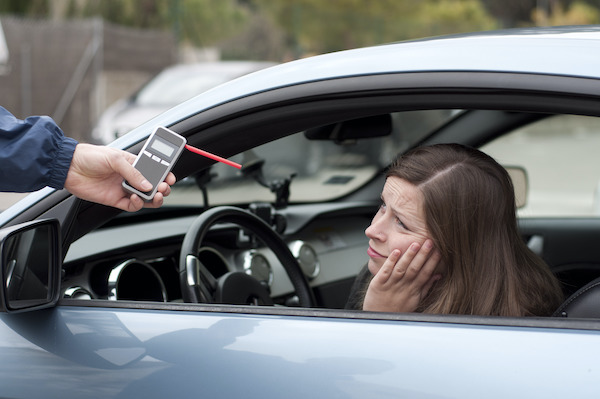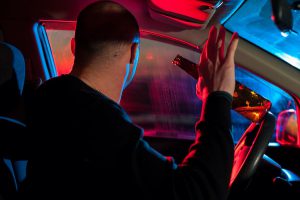If you drink and drive, then you need to consider the consequences of your conduct. A DUI is a serious matter, even if it is generally treated as a misdemeanor offense in most cases absent aggravating circumstances that can upgrade it to a felony.
In any drunk or drugged driving case, you face a criminal proceeding, and an administrative one concerning your driver’s license. For both, you should enlist the services of an experienced criminal defense lawyer.
Drunk driving is a major factor in automobile fatalities despite decades of public awareness campaigns and imposition of stricter penalties. Police are on the outlook for drunk or drugged drivers, especially in the evenings and during holidays such as July 4, Thanksgiving, and Christmas Eve. DUI checkpoints, if allowed in your state, usually nab a number of drivers who display certain symptoms of being under the influence. Otherwise, an officer will stop your vehicle if you are weaving in your lane or violate a traffic law such as failing to stop at a stop sign, running a red traffic signal, or speeding. If you feel you are too drunk or fatigued to drive and pull over to the side of the road to rest, this will also capture the attention of roving highway patrol officers.
It is against the law to drive with a blood alcohol concentration level (BAC) of 0.10% or higher in every state but Utah, where it is .05%, or to drive while under the influence of alcohol or drugs regardless if you were tested or refused testing.
Pulled Over for a DUI
If you are stopped by police, the officer will ask for your license, registration, and insurance to ensure you are driving with a valid license, are insured, and are not in a stolen vehicle. Usually, the officer will give a reason for the stop. If the officer sees you fumbling with your documents, sees that your eyes are bloodshot, or that you are slurring your words, you will be asked if you have been drinking. Though you have no obligation to answer this incriminating question, many drivers who have been drinking respond by saying they have had 1-2 drinks, or a few, hoping that their honesty may placate the officer.
You can expect to be asked to perform a number of field sobriety tests (FST). These may include having you blow into a PBT, a portable or preliminary breath test. You can refuse this test and any other roadside test, but drivers rarely do so. Should the PBT register a BAC of 0.10% or higher, you will be placed under arrest for suspicion of DUI. The results of the PBT are not admissible as evidence in a trial.
If no PBT is available, the officer may have you go through a series of coordination, balance, or mental acuity tests. These include:
- With eyes closed, touch the tip of your nose with your finger
- Walk and turn
- One-leg stand
- Horizontal gaze nystagmus (HST)
Again, you are under no legal obligation to perform any of these tests unless you are on probation for a prior DUI or a felony offense or are under the age of 21. There are no criminal or administrative penalties for refusing.
Blood Alcohol Testing
Drivers suspected of drunk driving are advised about submitting to a breath test and that a refusal to take one can result in the automatic suspension of your driver’s license for one year for first offenders. You do not have the right to call an attorney to ask if you should submit or not. Your refusal can also lead to increased criminal penalties if convicted. Further, your refusal can be used at trial in most states as an admission of guilt.
You can usually opt for a blood test since these are usually more accurate, though its results are less susceptible to challenge by an attorney.
You may be released to anyone who can drive you home. You may or may not have to post bail depending on whether you are a multiple offender or the policy of the jurisdiction where you were arrested requires it.
License Suspension Proceeding
When arrested, your license is confiscated, and you are given a temporary license that is generally valid for 30-days. You will be given an advisement that you have a limited time to contest the suspension of your driving privileges—usually 10 or 15-days—or it will be automatically suspended.
The license suspension hearing, sometimes called an administrative per se hearing, is conducted by a hearing officer in most cases. The issues to be determined are:
- Did the police have proper cause to stop your car?
- Were you lawfully arrested?
- Did you have a BAC of 0.08%?
- If you refused testing, was your refusal reasonable based on the facts and circumstances?
If you win, your license is returned to you. Your attorney can use this to get your DUI criminal charges dropped or have you plea to a non-alcohol related traffic offense and pay a fine. Should you lose, your license will be suspended for 4-6 months for a first offense, and for one year if you refused testing. In most cases, you are eligible for a restricted license that will allow you to drive to and from work or school only.
Penalties for a DUI
The penalties vary for first-time and multiple offenders. For an initial offense, you can generally expect:
- A fine of up to $1,000
- A jail sentence of up to one-year, usually suspended
- 2-days in jail or community service as an alternative (10-day minimum jail sentence in Arizona and Georgia)
- Probation of 3-years
- Mandatory participation in a DUI class for 3-months
- Installation of an interlock ignition system in your car for a time after you receive a restricted license or regular license for a certain time
For insurance, most states require that you purchase SR-22 insurance, a special policy whose cost is 2-3 times what you were paying before your DUI conviction.
For second offense over a 10-year period, a DUI is generally still a misdemeanor, but the penalties increase to minimum mandatory jail sentences in most states that range from 10-days to 3-months with a 180-day minimum sentence in West Virginia, though you may receive an alternative sentence of community service in some states. You can expect your driver’s license to be suspended for 2-years in most states. All other penalties that apply for a first offense are imposed except for a longer time.
A third offense can result in mandatory jail sentences ranging from 120-days to 150-days or more depending on whether aggravating circumstances apply such as an elevated BAC or egregious driving conduct was involved. Some states, though, treat a third offense as a felony where you face up to 2-years or more in state prison. For a third offense, many states will suspend your license for at least 3-years, though you lose it for up to 8-years in others.
A fourth DUI within 10-years is usually charged as a felony and will result in a mandatory minimum jail or state prison time of 1-5 years in many states, and loss of your driver’s license for 10-years if not permanently.


